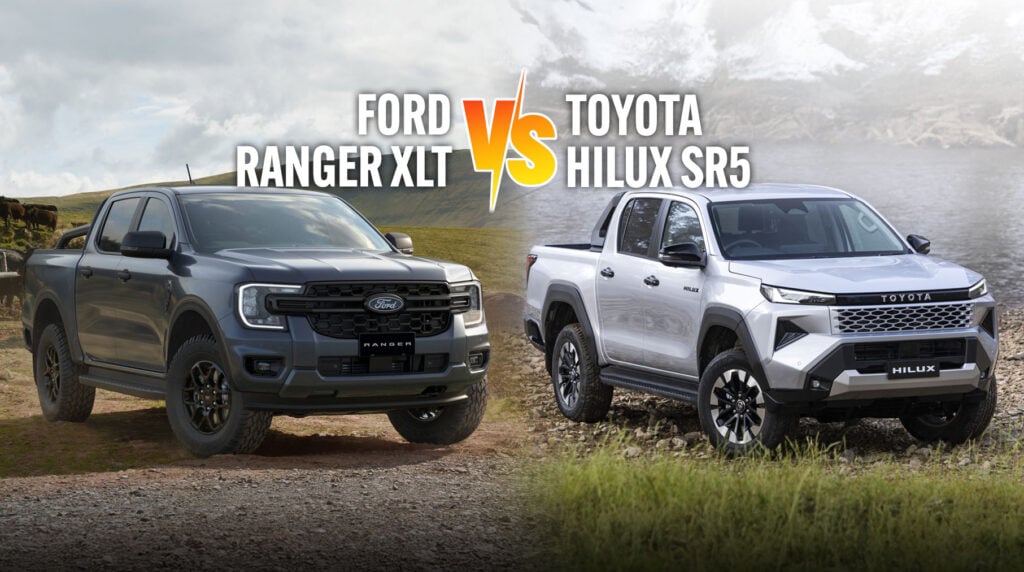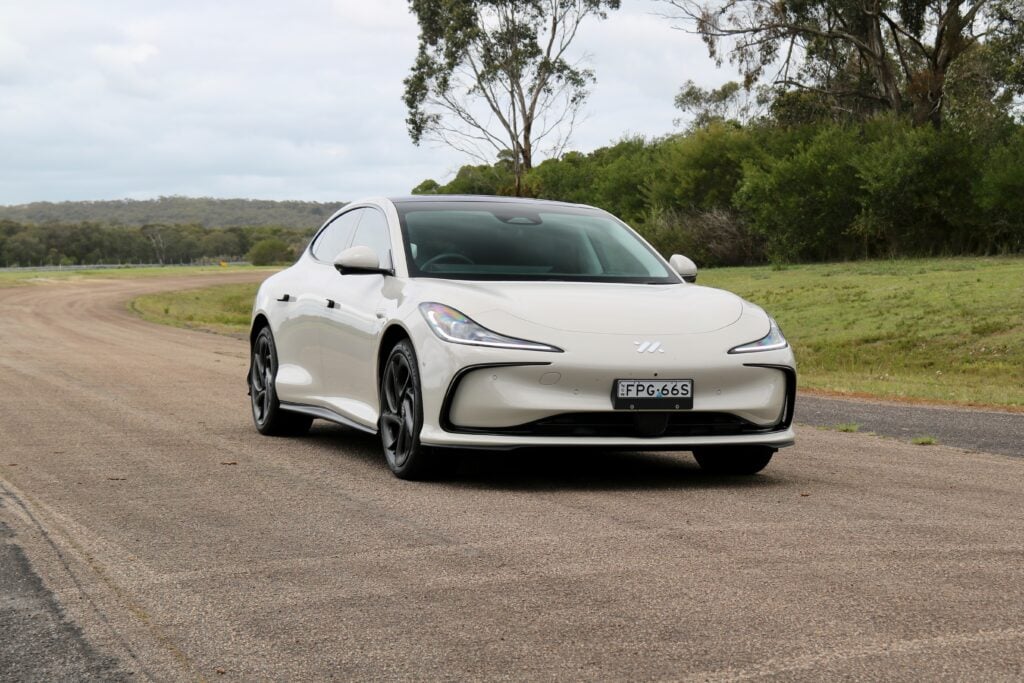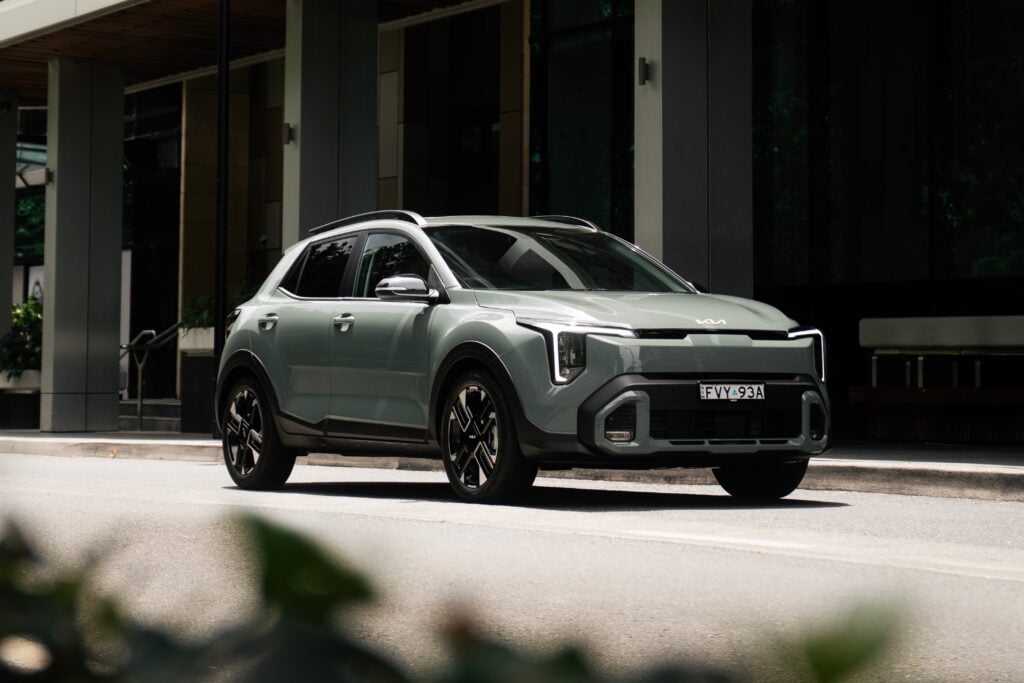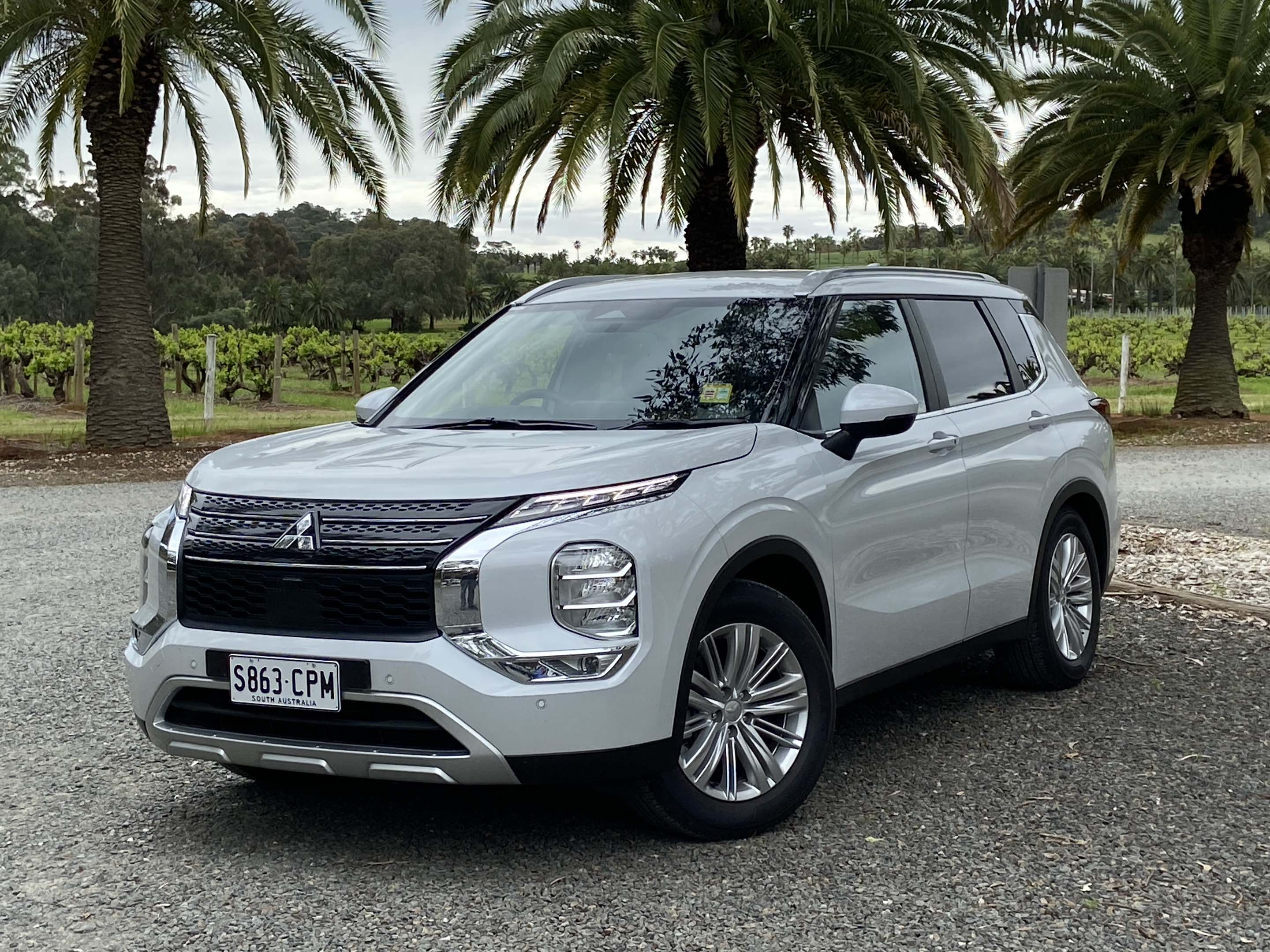
Things we like
- Comfortable and quiet ride
- Strong technology features for the segment
- Excellent interior materials
Not so much
- CVT groaning during freeway on-ramp acceleration
- Third row seats make for slightly shallower boot space
- Navigating instrument cluster takes some familiarisation
Wheels Media’s production contributor Andy Hunt spends a few days with the 2023 Mitsubishi Outlander LS 2WD to give us his Regular Everyday Bloke “I’m no journalist” take on the popular SUV, and to see how it compares with his own 2017 Tiguan Comfortline 110TSI.
JUMP AHEAD
- The car
- First impressions
- Comfort
- Technology
- On the road
- Safety
- Fuel economy
- Parking
- Last impressions
- Specifications
Much like Michael’s earlier ‘Regular Everyday Bloke’ review of the WRX tS Sportwagon, it should be noted that I am definitely not an automotive journalist. I have, however, worked in a job that sought to supply colleagues with a vehicle that is fit for purpose – an exercise in researching and recommending the best vehicle for a given task.
So, the words that follow are a mix of findings from a former fleet person and the even more onerous task of just being a dad.
I’m a father to an eight-year-old and a five-year-old, with family-hauling duties currently being done with a 2017 Volkswagen Tiguan Comfortline 110TSI. Our VW was selected at the time for its generous boot size and the general aesthetic that pleased my wife and I. When purchasing back in 2017 there was a stern requirement to haul a pram, bags myriad, and various toolsets and cleaning items for the very real messes that children created.
Upon mentioning to Stevo that my family had planned a brief trip to the Barossa Valley in South Australia, I soon found myself with the smart key to a Mitsubishi Outlander LS. (He’s relentless in extracting content from us all.)
While our need to carry strollers, prams and bags has lessened since 2017, a few nights away from the city still needs a boot full of clothes, games, snacks and a technology bank to exceed a 1960s’ NASA launch.
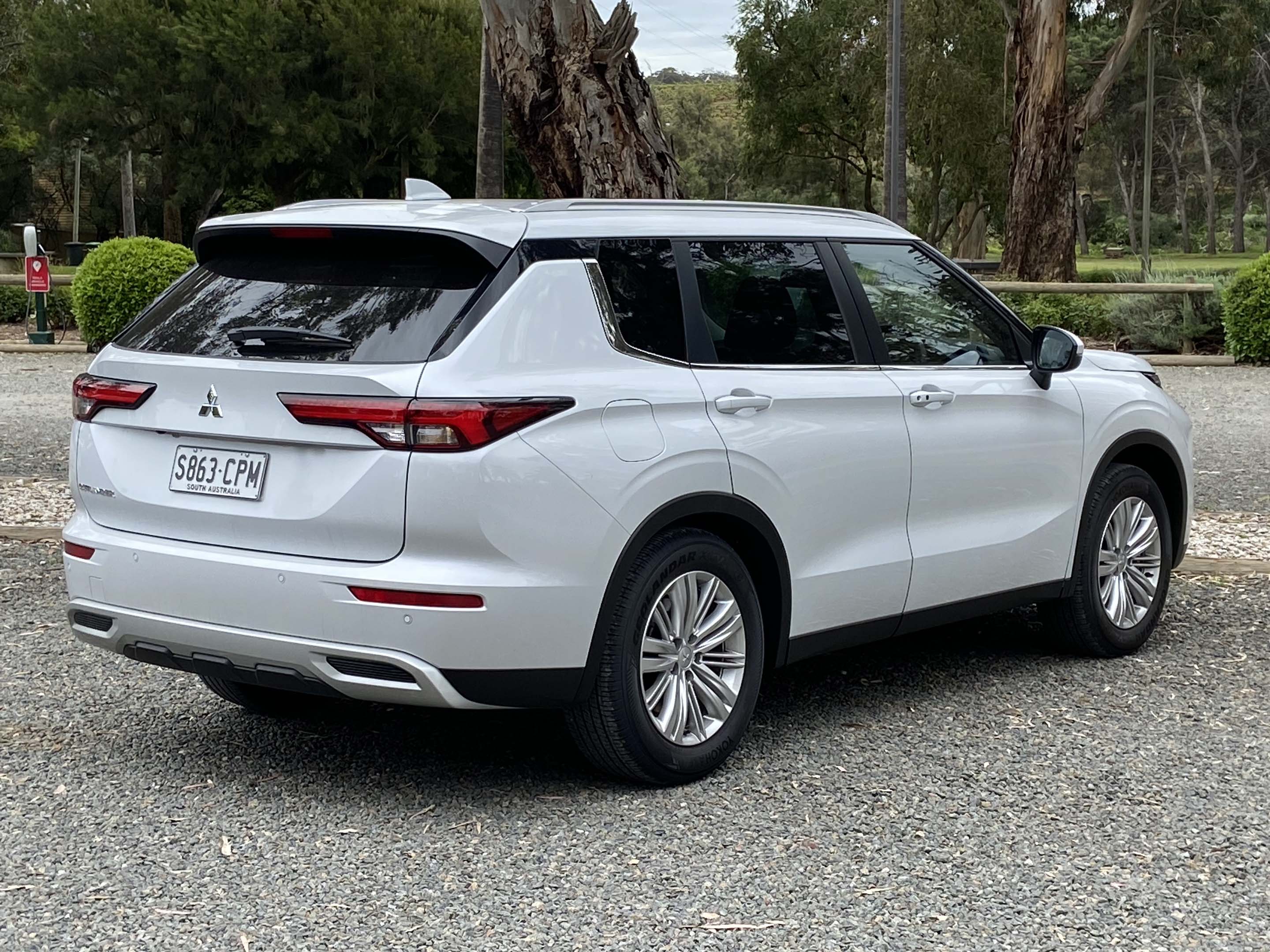
The Car
2022 Mitsubishi Outlander LS: $43,780 before on-road costs
First impressions
That Mitsubishi grille is very tall. It is immediately noticeable upon approaching the car and the result of that tall grille is that of a fairly horizontal bonnet rather than a gradually downward-angled one. It’s a bold styling move that ties well to Mitsubishi’s design language, past and present.
Wheels editor Andy Enright recently described Mitsubishi interiors of yore as “plastic dungeon(s) of despair” but reassured me that things were improving for the three-diamond brand with its new line-up.
My initial impression upon climbing inside this Outlander cabin also fell in line with Enright’s opinion, my last experience of a Mitsubishi product being a fleeting evaluation of the previous-generation Outlander PHEV.
While I do outline above that I am not an automotive journalist, that did not stop me from poking and prodding various touch points inside the car like a YouTube car reviewer, desperately in search of something to describe as “scratchy”.
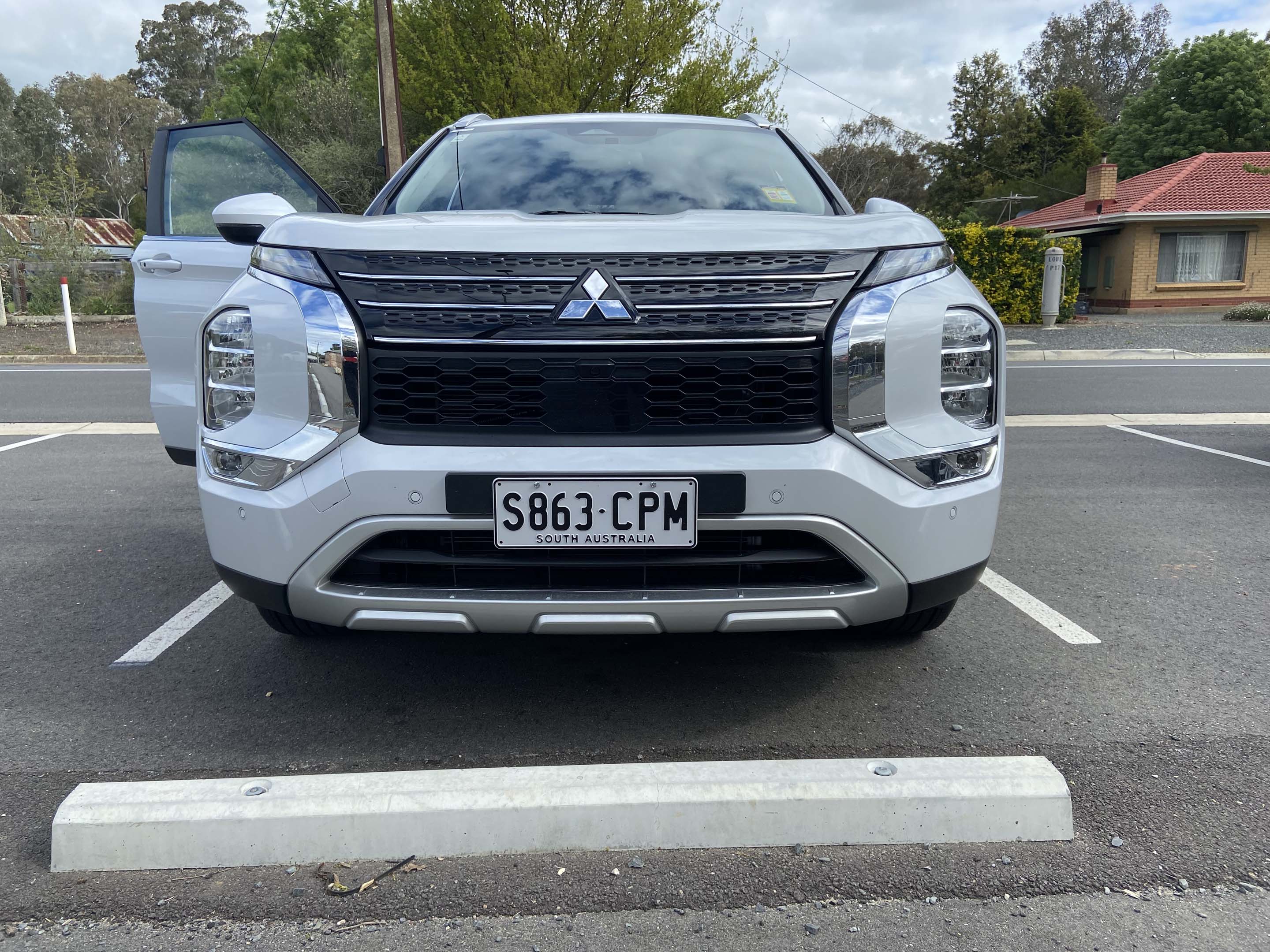
Instead, I found that stretching my elbows out always had them eventually resting on some soft surface that was wrapped in fabric or soft-touch plastic. As the Outlander LS is the variant that’s a little above the base model, I considered the interior impressive.
The sizeable infotainment tablet-style screen monsters the centre of the dash and features a sharper resolution compared to which I’m usually accustomed. Text and icons are presented clear and smooth when compared to our half-decade-old VW, reminding me of the first time I saw an iPhone’s ‘Retina’ screen back in the day.
Eventually finding the engine start button (which was sneakily hidden from my line of sight behind the wiper stalk) the car snorted into life and rolled its way out of Mitsubishi’s Adelaide office.
I found that stretching my elbows out always had them eventually resting on some soft surface that was wrapped in fabric or soft-touch plastic.
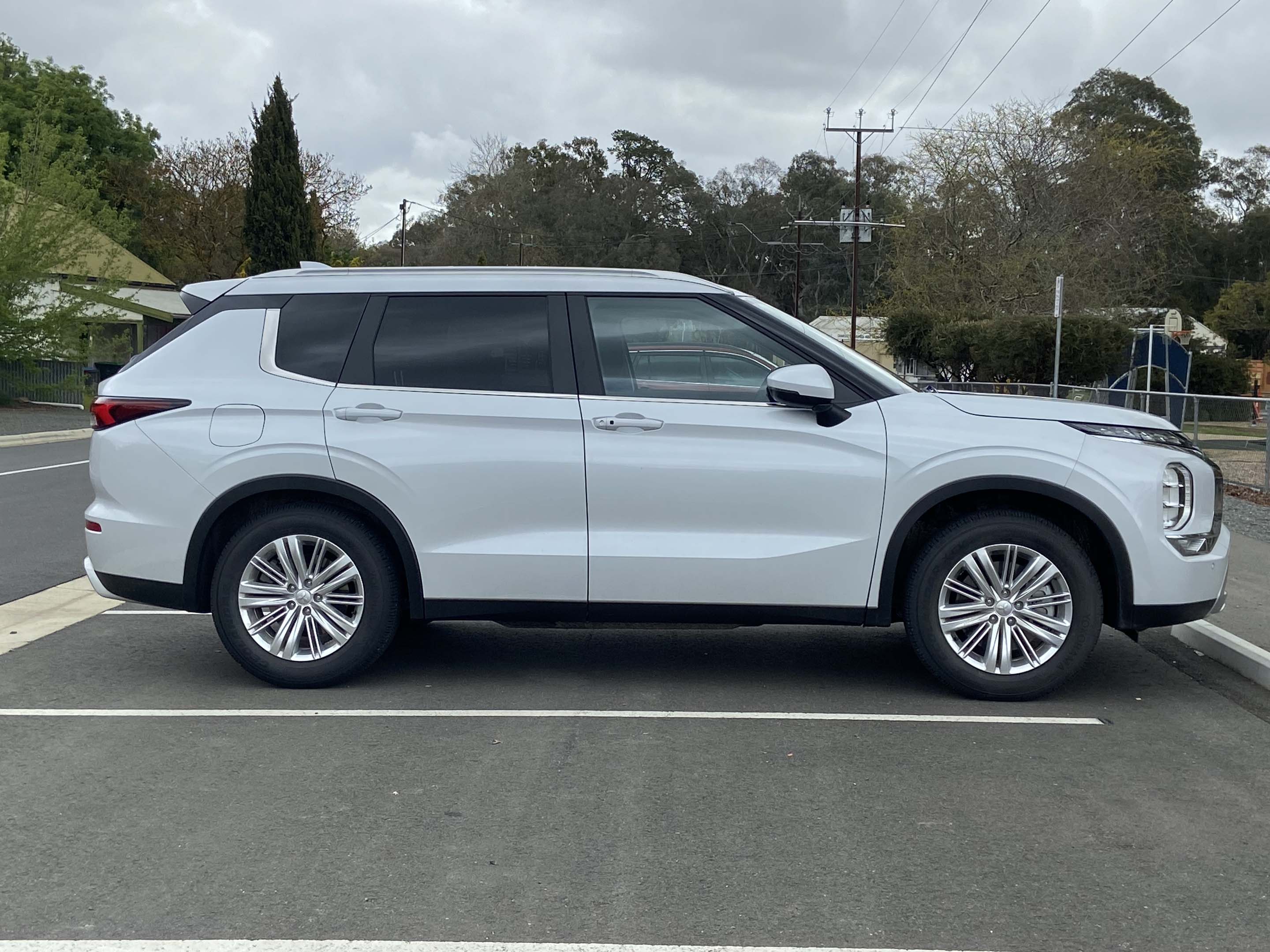
Comfort
As mentioned above, all the points where my limbs seemed to rest were always comfortable. The driver’s seat was well-supported and bolstered in a manner ideal for the target audience that this vehicle seeks; parents. Rear space was also quite generous, even after installing a child seat for our youngest and a booster for our eldest.
With no clumsy caps or flaps over the ISOFIX points on the second row, child seat installation is fuss-free. As expected for any kind of vehicle, strapping those kids’ seats into the back does make the middle-rear spot completely redundant.
The steering wheel is adjustable for height and reach, and as this Outlander is the near-entry level variant, the driver’s seat is lifted with a ratchet rather than some motorised fancypants. An ideal driving position was easily found, and with the large central screen and wide central console, the front pews felt much like a snug “in the car” feeling, rather than an “on a perch” sensation.
This particular vehicle is the seven-seater, although that matter will be covered toward the end of this review.
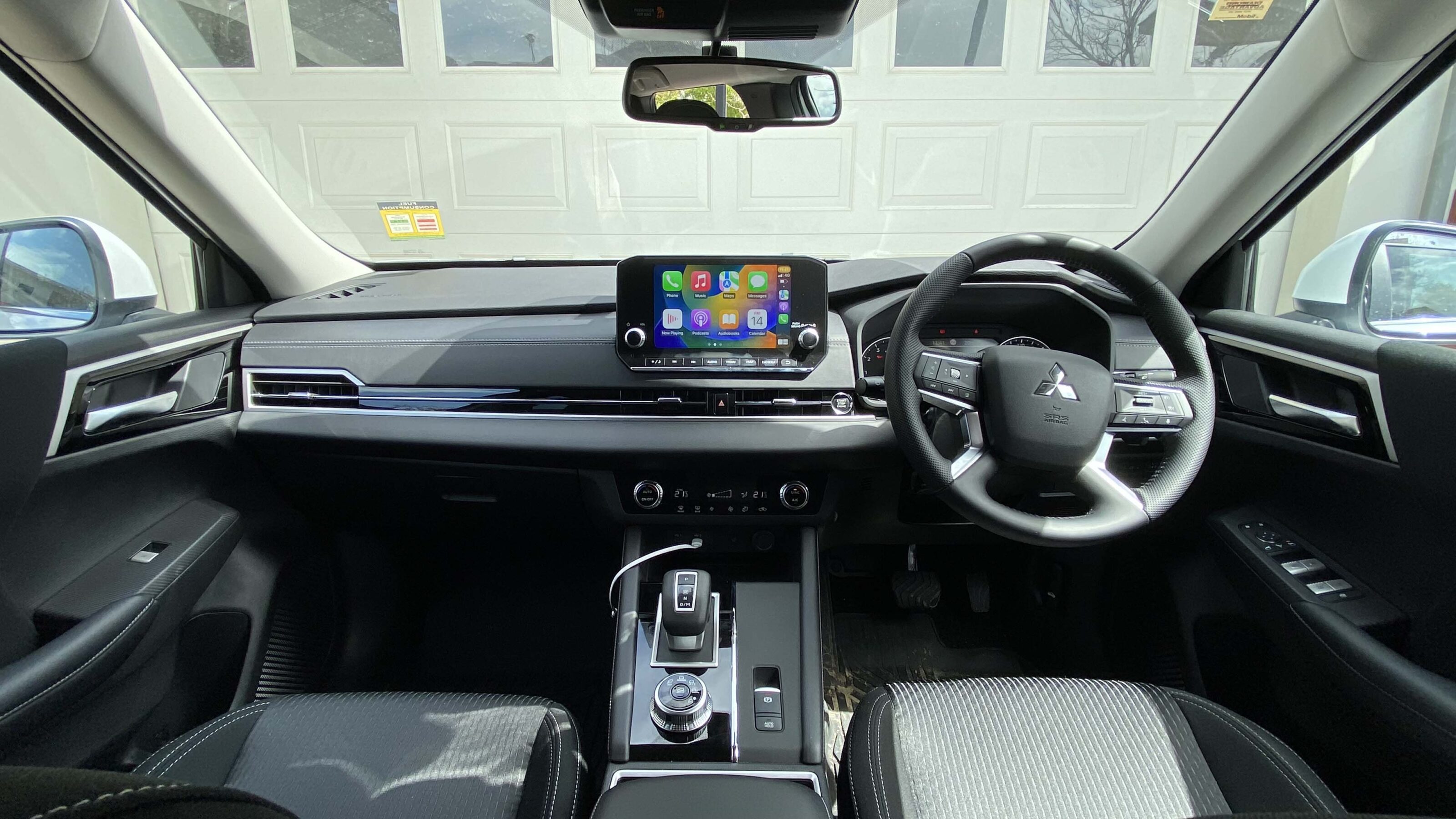
Boot space is quoted at 478 litres for the 5+2 arrangement with the very rear seats flattened, although that shrinks to 163 litres when the third row is put upright. Fold everything down and the capacity number explodes to 1473L (per VDA guidelines)
Of course, the above assumes your cargo is packed to the ceiling of the cabin.
In my previous life of considering whether a vehicle was fit for purpose, I always found measuring a boot by its litres to be a fairly vague method, especially when having to consider the equipment or cargo actually being carried.
The width of the cargo space between the wheel arches was often a missed detail that sometimes impacted the size of items to be slid across its floor, but Mitsubishi helpfully provides these measurements.
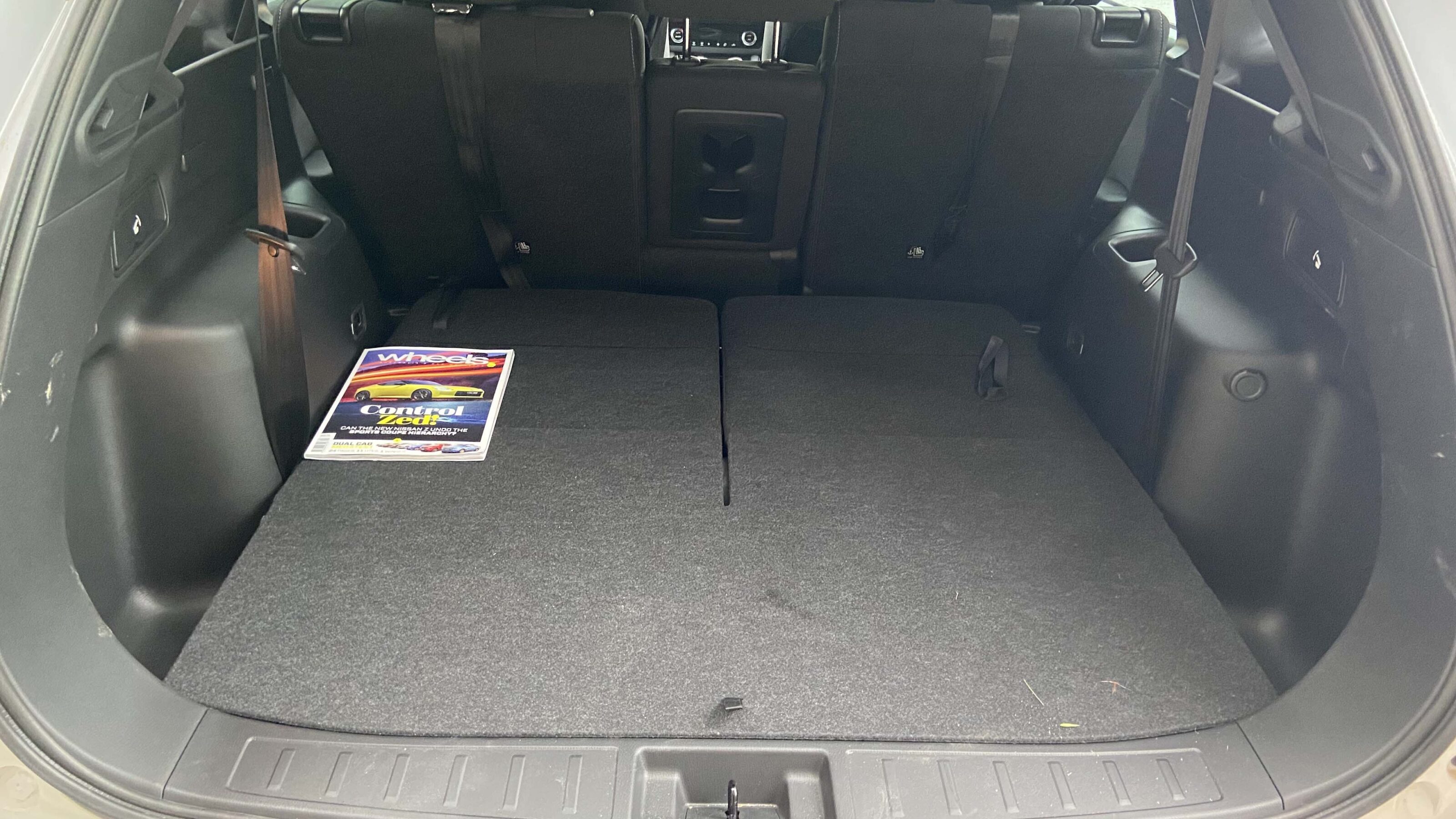
2023 Mitsubishi Outlander LS 7-seater boot dimensions
| Boot length with third row down (mm) | 974 |
| Boot length with all seats down (mm) | 1717 |
| Cargo space width (mm) | 1380 |
| Cargo space height (mm) | 870 |
| Width between wheelarches (mm) | 1156 |
| Litres (third row down) | 478 |
| Litres (all rows upright) | 163 |
| Litres (all rows folded) | 1473 |
The Outlander was able to fit all the various items for our escape, although the extra two seats in the back did make the cargo space feel shallower.
The boot floor sat flush with the opening, so there was no need to lift items up and out when removing them. While the boot did carry everything we required for the getaway, our expectation was that there would have been more leftover space.
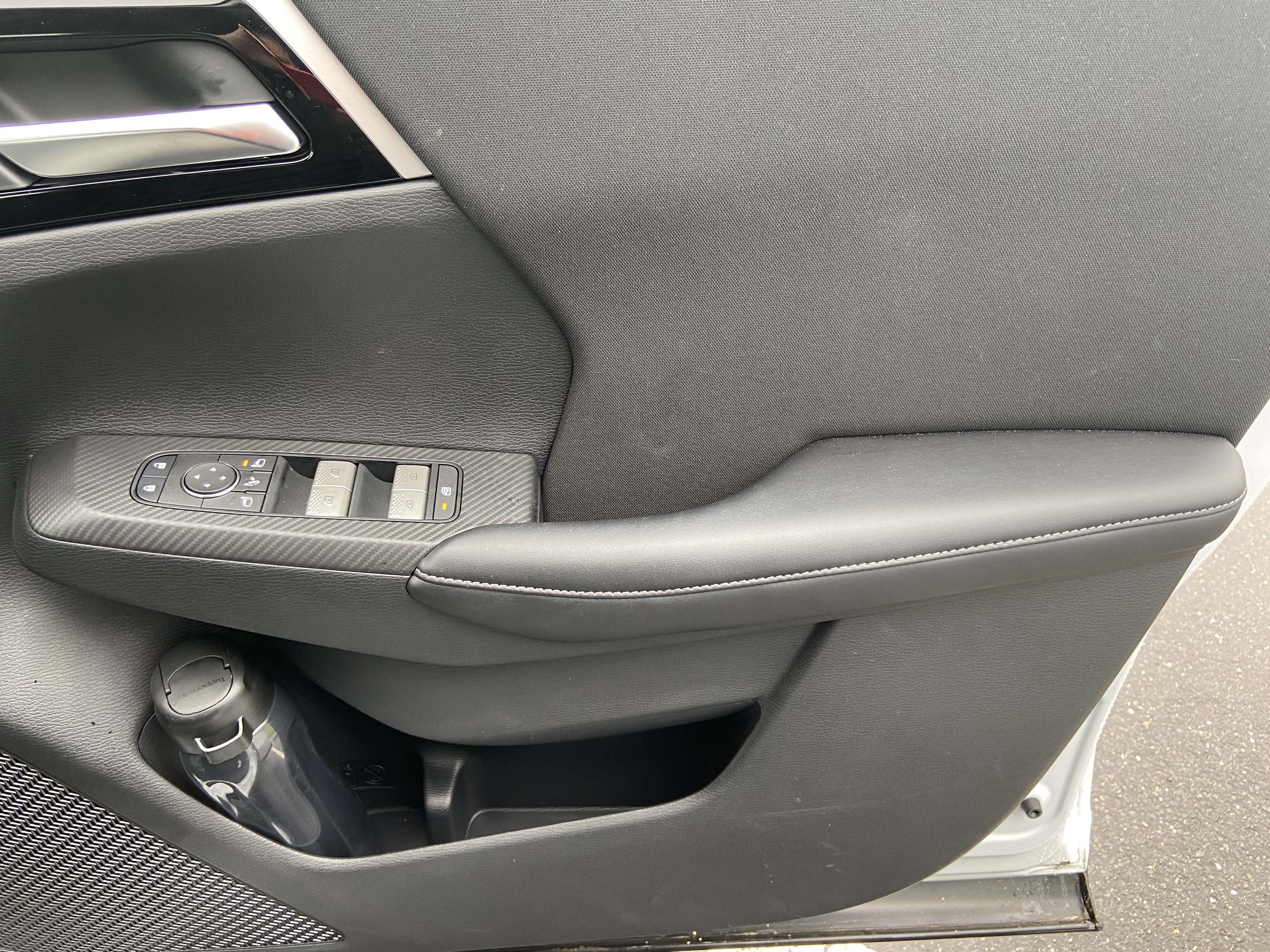
Entertainment and technology
All the usual features are easily identifiable on both the centre console, steering wheel and infotainment unit. Having grown familiar with using the steering wheel for most functions, the buttons were understandable almost immediately.
With the trend toward instrument clusters becoming enormous LCD screens, it was almost comforting to see two large analogue dials framing a sizeable digital display in between.
It was like having an old friend back, reminding you that they were always there should anything fail.
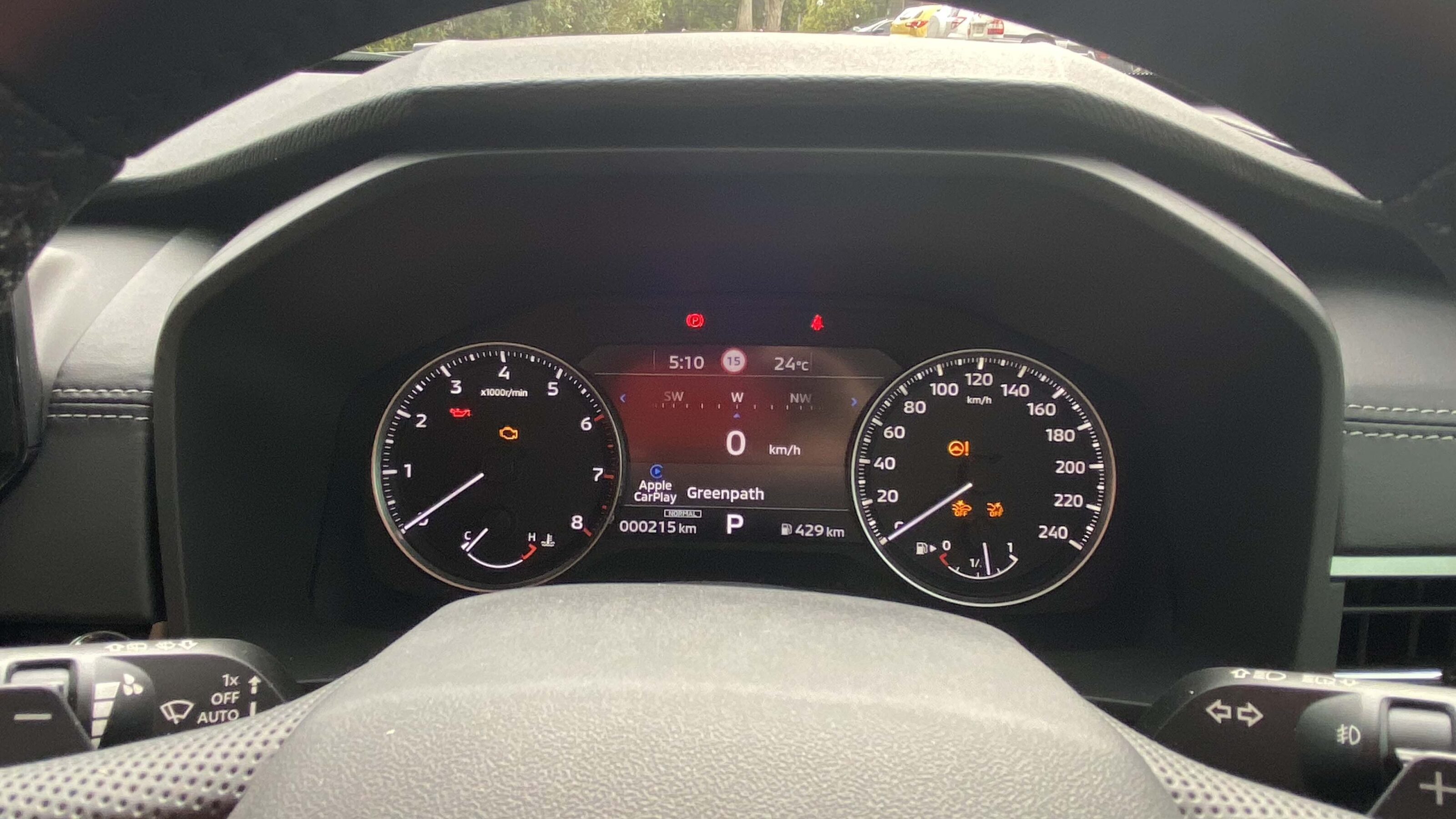
Wireless Apple CarPlay worked seamlessly, and the centre console contained a neat cubby with Qi wireless charging that seems large enough for most modern smartphones. USB-A and USB-C outlets for the second row ensure that the backseat Mission Control has devices properly charged.
I had anticipated some lag between the interface and CarPlay due to the non-wired connection but was generally happy with the response time. Android Auto is also included, although I cannot report anything for those who prefer the Google way of things.
My kids are in that phase of life where they like to listen to music I consider to be hot garbage, but with some tweaking of the bass, mid and treble settings the speakers were able to make the music much crisper… if still hot garbage.
Wireless Apple CarPlay worked seamlessly, and the centre console contained a neat cubby with Qi wireless charging that seems large enough for most modern smartphones.
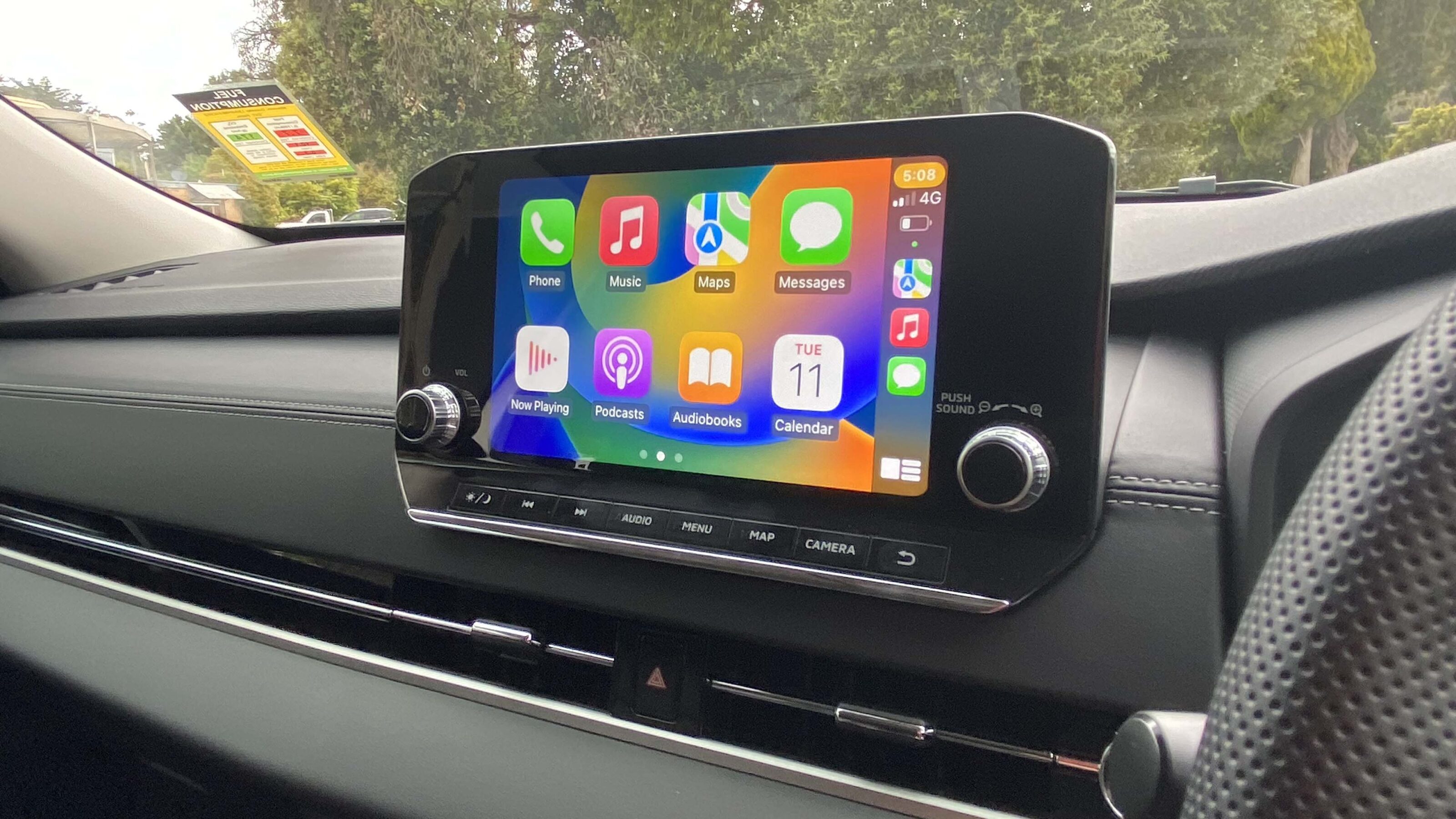
On the road
The Barossa is an old stomping ground for me, having grown up nearby. Escaping the city to the countryside during school holidays allowed for a final chance in 2022 to see the valley before summer turns it that wonderful shade of dry, South Australian yellowish-brown.
Mitsubishi’s automatic continuously variable transmission (CVT) will do little to convert people who don’t like them, but the unit in the Outlander at least allows acceleration in a way that feels brisk without having that excessive and touchy lurch I’ve experienced in other makes. The 135kW/245Nm 2.5-litre four-cylinder petrol does sound a little forlorn on acceleration, but the pace it gathers is still perfectly fine for its 1645kg mass (and everything onboard).
At speed, the Outlander happily barrels along the highway, with wind noise being barely noticeable and tyre noise being unnoticed and easily drowned out by the pulsing hot garbage being played through the rear speakers.
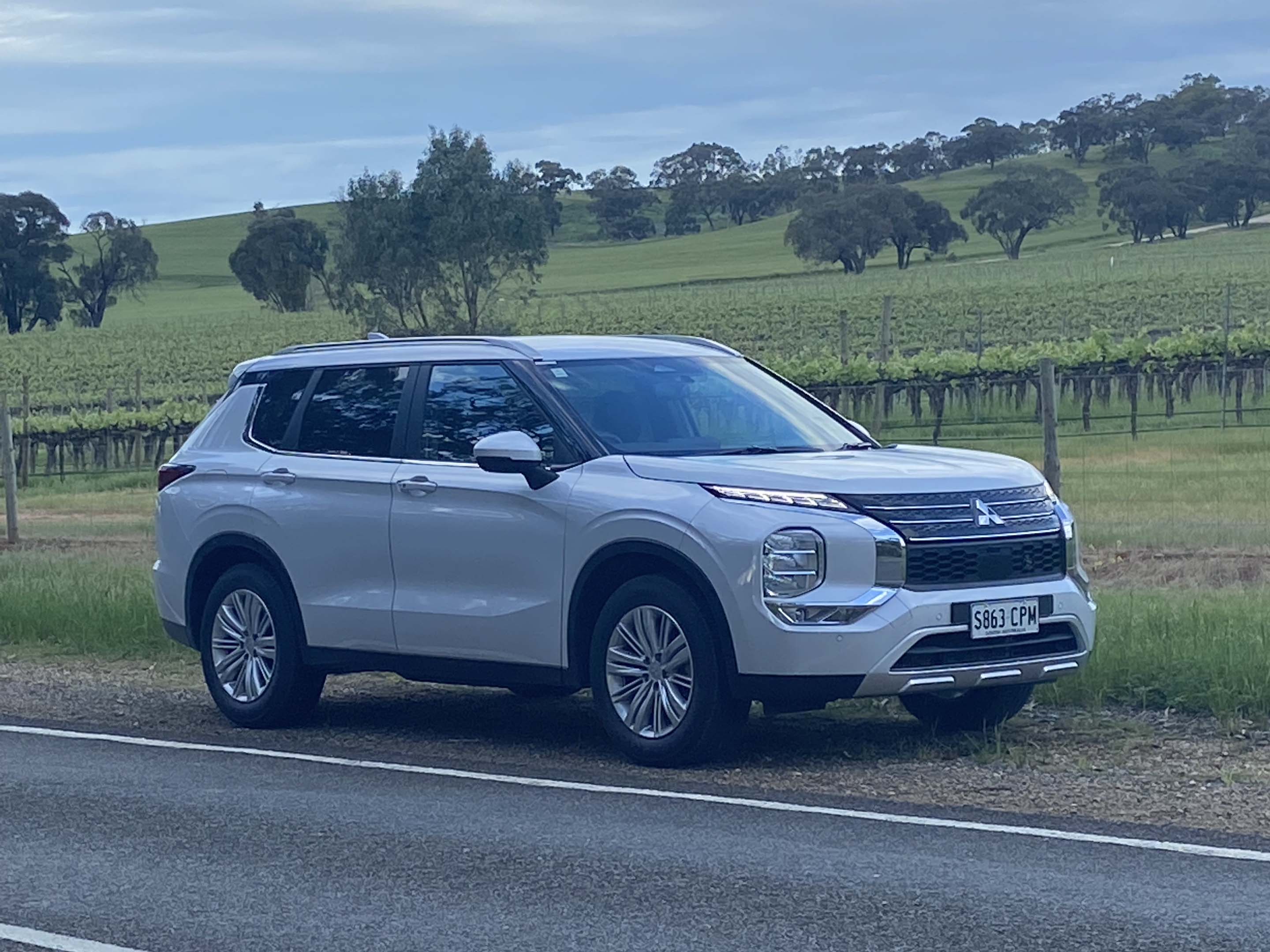
The issue of blind spots never seemed to arise, although I note that the blind-spot indicators on the side mirrors are red instead of amber – something which often makes my brain incorrectly register that a car next to me is using a turn signal to get into my lane.
Steering is surprisingly light as well, allowing the Outlander to change direction with very little effort. While such a car isn’t really defined by its corner-carving abilities, the LS felt planted through turns, hinting at – but never really revealing – its higher centre of gravity.
After wandering off some beaten tracks to find some walking trails we found ourselves snaking through some very narrow gravel roads that had grown soft and muddy from fairly heavy rain.
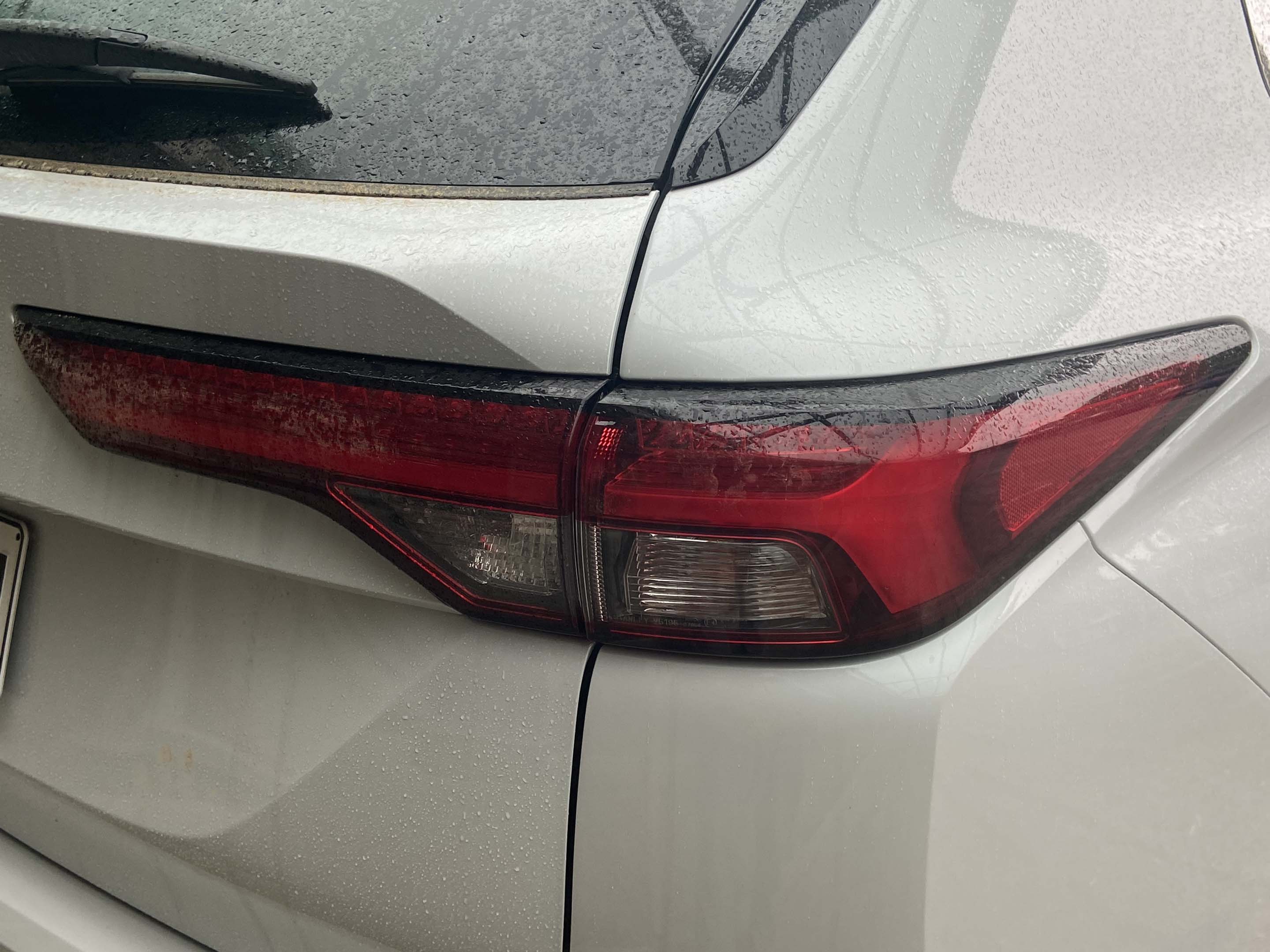
Working through to Kaiserstuhl Conservation Park there were a number of fairly steep inclines and descents that I thought might test the mettle of the Outlander.
Stumbling onto such tracks was not an intentional move on my part to test the car – just an accidental happening from blindly trusting Siri – although thanks must go to the driver of a muddy Nissan Navara just outside Cockatoo Valley who did a far better job than Siri with providing directions to the Barossa Goldfields walking trails.
Despite being only a front-wheel-drive variant, the Outlander climbed hilly gravel roads without issue and the hill descent control feature served to keep a steady and safe pace during one fairly sharp plunge on a muddy trail. It was hardly what you’d describe as hardcore off-roading, but it was still impressive for a weighty two-wheel-drive vehicle.
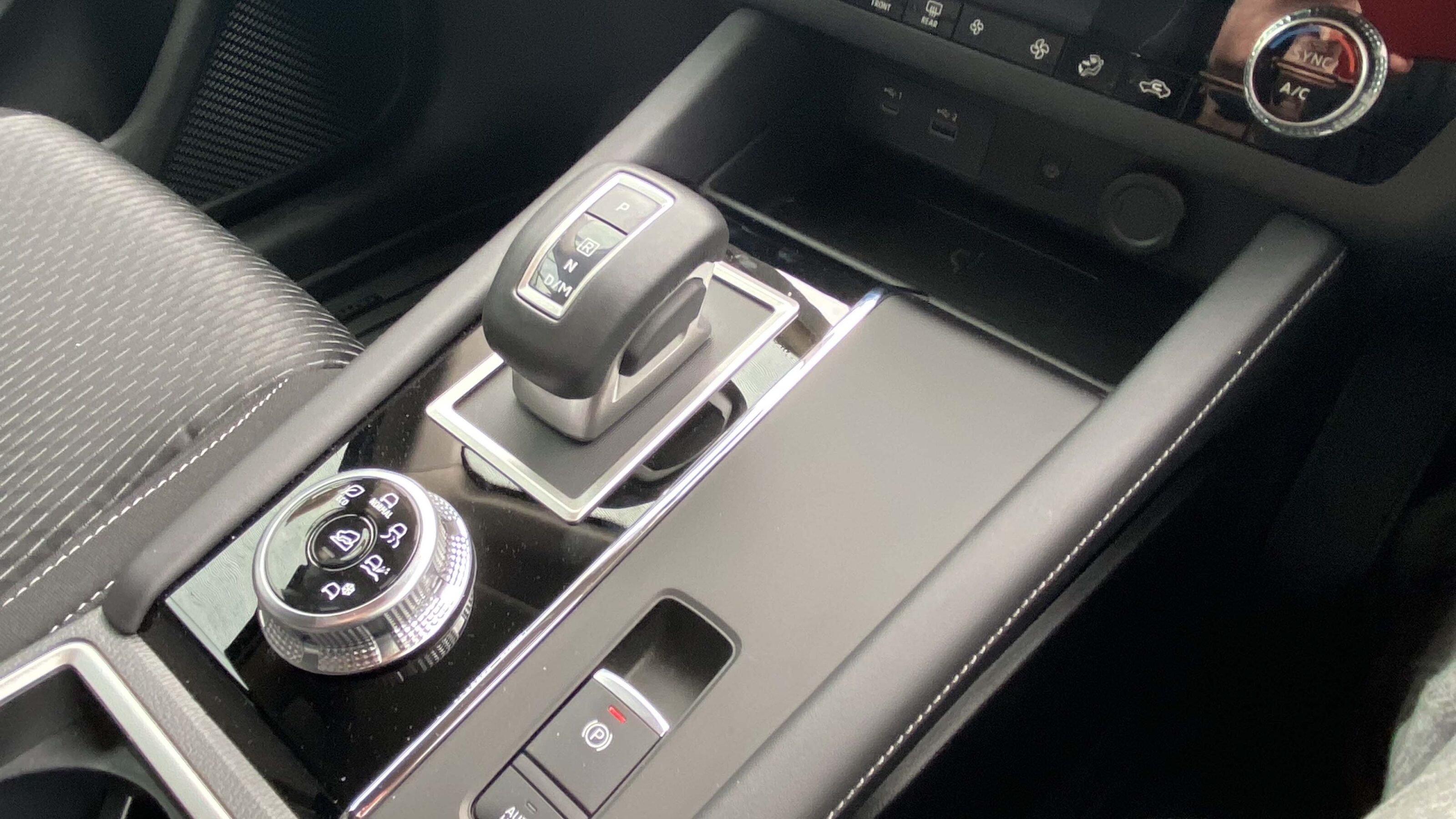
Drive modes
The centre dial on the console is used to switch between the five various modes: Eco, Normal, Tarmac, Gravel and Snow. The dial spent most of its time on the Eco setting, taking only one dalliance with the Gravel option during a Siri-guided descent into a dead-end road.
Safety
Along with eight airbags around the cabin, the Outlander also sports forward collision mitigation, blind-spot monitoring, rear cross-traffic alert and lane departure warning. The latter alerts the driver by vibrating the steering wheel but certainly doesn’t seem as zealous as others I’ve experienced.
The lane departure warning serves up simple flash from the dash and polite, unobtrusive “pip” noise.
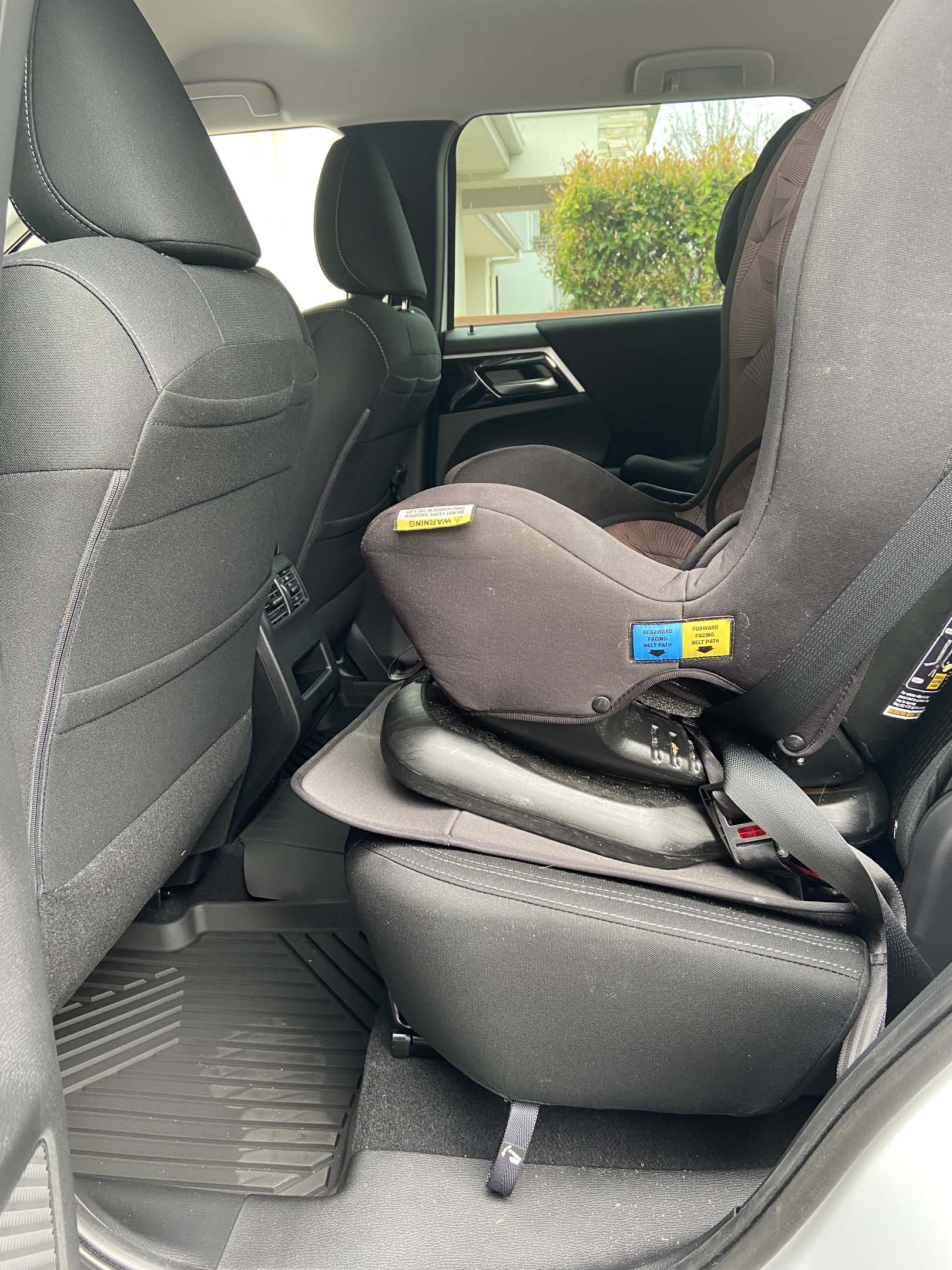
Fuel economy
Mitsubishi quotes fuel consumption of 6.4L/100km for highway driving, and for the escape to the Barossa and surrounds this figure proved to be accurate. Combined consumption is quoted at 7.7L/100km.
Over the course of the week that the vehicle was tested, which included mostly country driving, but with some city errands such as shopping and local visits, average fuel consumption reported on the trip computer was 8.6L/100km.
A feature notable by its absence was the stop-start feature that shuts off engines when at traffic lights. Drivers who have gotten into the habit of disabling the function as part of their start-up routine can strike that task from their pre-drive checks in the Outlander.
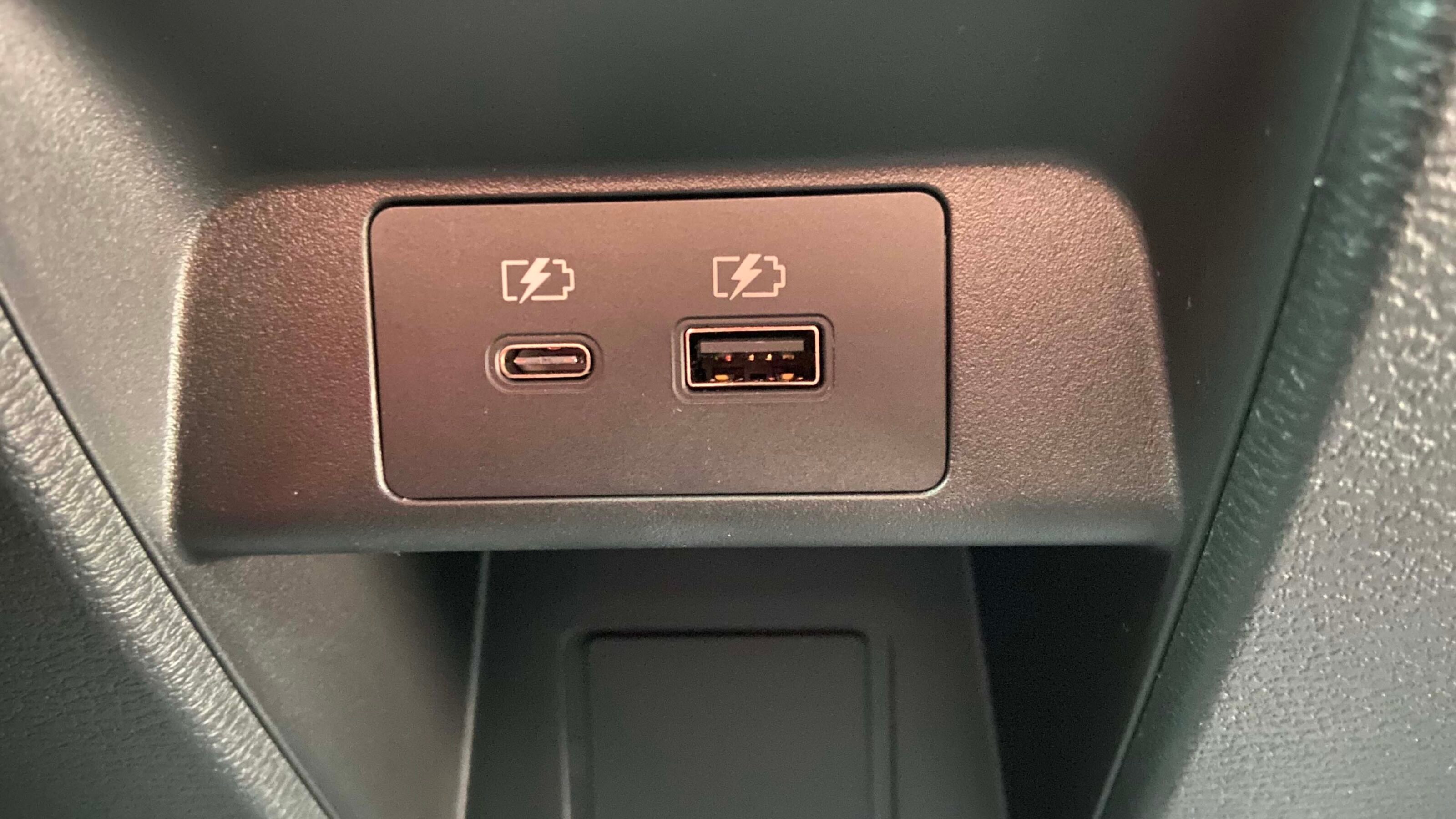
Parking
As mentioned earlier, the tall grille leads to a fairly horizontal bonnet, which did make it slightly more difficult to pick the corners of the car during the familiarisation stage of life with the Outlander. But the many sensors around the vehicle, coupled with the rear-view camera did make reverse parking easy.
The turning circle is also far better than I have experienced with previous Mitsubishis, so negotiating tight turns in car parks was a breeze despite the 4.7 metres of car being shuffled around.
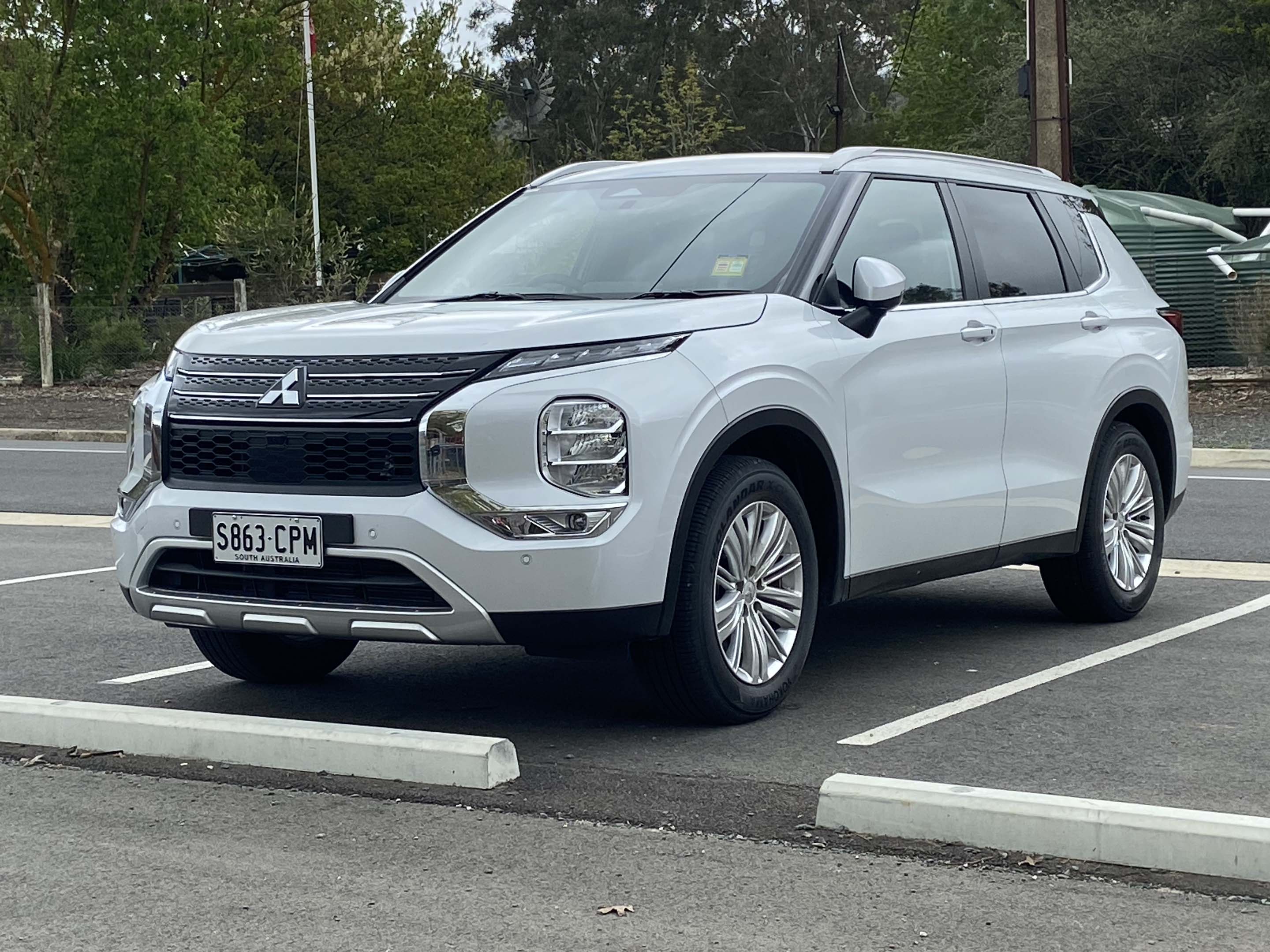
Last impressions
Mitsubishi has definitely made a very compelling product with the Outlander LS, even if the non-PHEV version might not be the green path some would prefer to embark upon.
In the final days of having the Outlander, the family decided to bundle a couple of other friends for a drive out to the Adelaide Hills and the chocolate factory at Woodside. Having the plus-two seats in the back made the experience a lot more convenient in terms of moving people around.
This did change the math a little for us when it came to judging the prowess of the Outlander for the brief it is meant to meet: that of transportation. The boot space for our trip to the Barossa might have been a little less than we had anticipated, even though the cargo area still fit all our gear, but having those extra two seats for friends later in the week saved the need for using two cars for a day trip.
Those third-row seats might be best for the littlest people in the car, but they still worked perfectly for their intended purpose.
So the equation would come down to how often we might transport extra people versus transporting extra stuff. For shopping excursions, the Outlander was more than suitable and the cargo space was just enough for that occasion of loading up a weekend’s worth of kids’ gear.
But for day trips with friends, having those extra seats were definitely worth it, completely saving us from needing to use an extra car.
Mitsubishi has definitely made a very compelling product with the Outlander LS, even if the non-PHEV version might not be the green path some would prefer to embark upon.
It’s a well-featured, versatile and solid SUV that offers few frills at this spec level but also does a good job of hedging its practicality between being an effective people mover and an urban grocery shopping tank.
2022 Mitsubishi Outlander LS 2WD specifications
Things we like
- Comfortable and quiet ride
- Strong technology features for the segment
- Excellent interior materials
Not so much
- CVT groaning during freeway on-ramp acceleration
- Third row seats make for slightly shallower boot space
- Navigating instrument cluster takes some familiarisation
We recommend
-
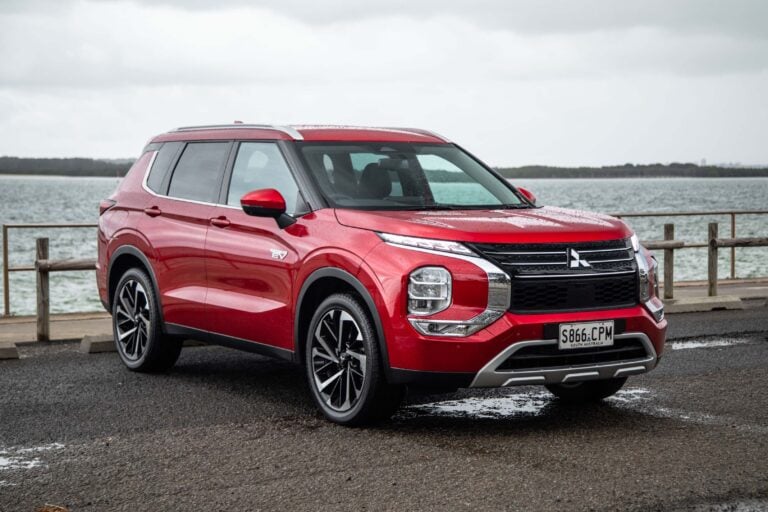 News
News2023 Mitsubishi Outlander PHEV pricing and features
Mitsubishi's latest plug-in hybrid SUV has received its first update with revised specifications and added safety technology – but with price rises of up to $1500
-
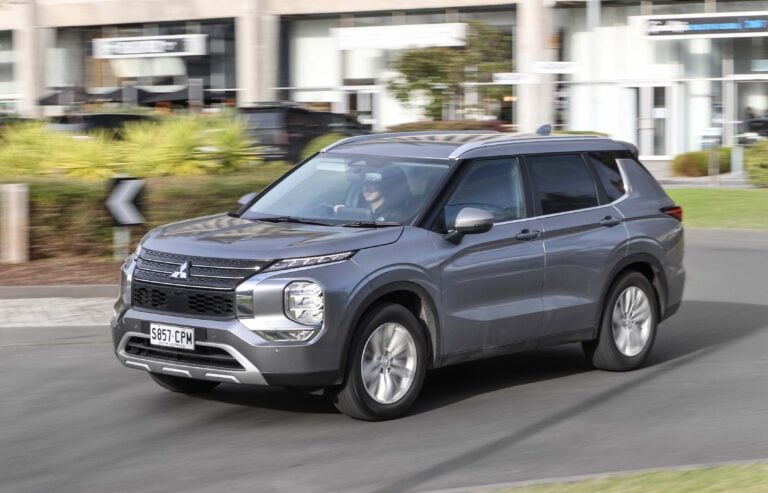 Reviews
Reviews2022 Mitsubishi Outlander LS 2WD review
Mitsubishi’s mid-spec Outlander is more than the sum of its parts
-
 News
NewsNew car calendar 2026: All the new cars coming to Australia next year
Here’s the WhichCar by Wheels guide to all the new cars that will launch in Australia in 2026. Check back in regularly for updates...

